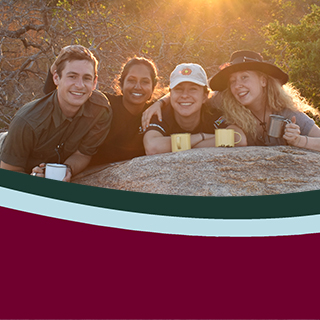Fall 2019
Can Giving Change the World?: Engaging Social Responsibility through Philanthropy
Greg Larson and Sarah Hayden
This course examines the relationship between the individual and society by addressing the question: How do individuals and organizations address pressing and enduring social problems to create meaningful change? Through the lens of philanthropy, this course introduces students to social responsibility and some of the big problems facing society. We will learn about how philanthropists and social entrepreneurs are creatively combating the most pressing social problems such as poverty, environmental degradation, and disease at local, national and global levels. A large portion of the course is focused on a hands-on grant-making project where the class will explore community needs, solicit grant proposals, visit prospective grant finalists and, ultimately, give away $10,000 in real money to local nonprofits.
Energy Conflict: Coal, Nuclear,Oil, and Global Development in a Changing Climate
Peter McDonough
Perspectives on Energy explores the global energy nexus through the lens of controversy. As debates around energy issues tend towards polarization, leadership is multilingual, able to see nuances from a wide range of perspectives. In this class, students will use current controversies as gateways into the vast rabbit warren that is Energy. We will divide the semester into four modules; each will begin with a central question that manifests locally but has global implications and broader ethical dilemmas.
Global Issues and Public Diplomacy
Deena Mansour
This class provides the rare opportunity to bring the world to Montana through Zoom conversations with global foreign policy leaders. Diplomacy is managing America's relationships with foreign governments, international organizations, and the people of other countries. While we will learn about diplomacy in general, the focus of this class is public diplomacy. Public diplomacy breaks beyond pop culture to inform the world of who we are as Americans. Our nation's foreign policy is only successful if we use public diplomacy to learn about the people outside our borders and understand how they perceive our policies. You’ll learn how this is done through access to influential decision-makers like the U.S. Ambassadors to Malaysia and Equatorial Guinea, or a U.S. diplomat expelled from Moscow and currently resident in Ukraine. Closer to home, you’ll explore connections to diplomacy with a tribal elder and a hip hop dancer. Assignments include simulating a press conference and developing a public diplomacy campaign to hone practical communication skills.
Latin America in the 21st Century: an interdisciplinary approach to its main challenges
Maria Bustos-Fernandez
This course will introduce students with no previous knowledge of Latin America to the main issues and challenges the region faces in the 21st century. After a very brief introduction to how Latin American became a unified, yet diverse, region of the world due to the processes of three centuries of colonization, the course aims at situating Latin America in a global context. This opens the door to include Latin America in debates that are being considered and debated at a global level: migration, identity, urbanization, crime and corruption, environment and sustainability, and gender issues. Students will be expected to participate actively in discussions after completing their readings and relate the approaches Latin-Americans give to these issues to the ones we observe in our own community.
Migration and Refugees in the Modern World
Gillian Glaes
Given the current refugee crisis occurring internationally and the over sixty-five million refugees worldwide, this course will examine historical issues related to the contemporary migration crisis that the global community is facing. To provide a comparative historical and global perspective, students will explore the history of refugees and migration through several case studies, ranging from interwar Europe to Cuba and Sudan. The course will be structured in a way that will encourage students to draw comparisons between different countries and time periods while also providing the opportunity to explore various case studies involving refugees, asylum seekers, and migrants. As Missoula has actively resettled over 230 refugees, the course will also provide students with the opportunity to hear from organizations such as the International Rescue Committee and Soft Landing Missoula while contemplating the various challenges that refugees face in completing the journey to third-country resettlement and navigating the process of integration into their new homes.
Mind-boggling Global Communication Trends: Facebook, Fake News, and Foreign Influence
Phyllis Ngai
New information communication technologies have enabled innovations in the ways that we create knowledge, access information, and connect with people near and far. The Internet is transforming social, cultural, and political practices. While the media remains instrumental in spreading news, entertainment, and soft power on a massive scale, social media has intensified the impacts of communication networks. Facebook’s role in spreading fake news, enabling destructive foreign influences, policing information flows, etc., presents hot topics for discussions at the local, national, and global levels. In exploring all sides of the issues raised, students will “travel” around the world through reviewing a wide range of case studies, participate in class debates as global citizens, and role play government officials from different countries involved in negotiating international agreements.
